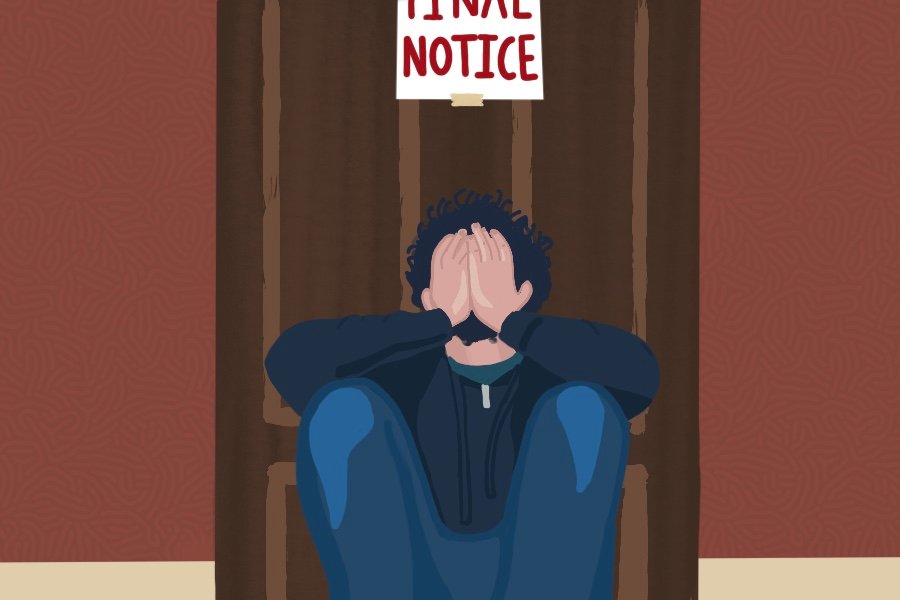City staff discuss combating rise in housing insecurity as pandemic persists
Illustration by Catherine Buchaniec
Jessica Wingader, the city’s grants and compliance specialist, called for the city to lead through a racial equity lens as it combats a growing housing crisis.
January 20, 2021
With 327 residents experiencing homelessness living in non-congregate and congregate shelters between March and December 2020, city officials say they expect housing insecurity to only increase as the pandemic persists.
The update, given by Evanston’s Housing & Grants division at Tuesday’s special city council meeting, was part of a report detailing resources utilized to protect the city’s homeless population during the pandemic. Evanston has spent over $7 million since March in support of those experiencing homelessness .
“The impact of COVID-19 is far from over, and more people may become homeless due to unpaid rent when the eviction moratorium wears off,” Sarah Flax, the manager of the division, said, referring to the state of Illinois evictions moratorium that has been in place since March. The state moratorium is currently set to expire Feb. 6.
The city is also spending $225,000 each month, at a rate of $2.7 million annually, to shelter those experiencing homelessness in the Margarita European Inn, a boutique hotel which has provided additional housing since the start of the pandemic.
Flax also said Evanston has an immediate need for a 50-person overnight and day shelter, as well as a shelter that can house up to 100 people.
“There has to be (the) ability to give people their own space,” Flax said. “Not only is it essential in health situations like COVID-19, but it also really enables many of them to work and improve their situation by having the space to deal with the needs of their lives.”
Flax said the project would take “significant funding,” but is an option that potentially could be less costly than housing individuals at the Margarita European Inn.
The report also found that Black and Hispanic people are overrepresented in the houseless and housing-insecure populations. According to a survey, 27.4 percent of Black respondents in the Chicago metro area found it very difficult to pay for usual household expenses amid the coronavirus pandemic. The same survey found that about 25 percent of Evanston families renting their homes are in danger of facing eviction.
Jessica Wingader, the city’s grants and compliance specialist, said the majority of evictions happen to Black and Indigenous people of color. She also said it is difficult to anticipate how many evictions will occur as a result of the pandemic.
“We must lead with a racial equity lens to address long standing barriers for our Black (and) Indigenous people of color.” Wingader said. “A return to pre-covid normal will not address these injustices.”
The report also gave updates on the city’s current Accessory Dwelling Unit (ADU) projects, such as 1930 Jackson Avenue, and said income inequality is expected to increase post-covid.
“The sobering news is, if you thought affordable housing was tough a year ago, it’s even tougher now,” Mayor Steve Hagerty said.
Email: jasonbeeferman@u.northwestern.edu
Twitter: @jasonbeeferman
Related Stories:



